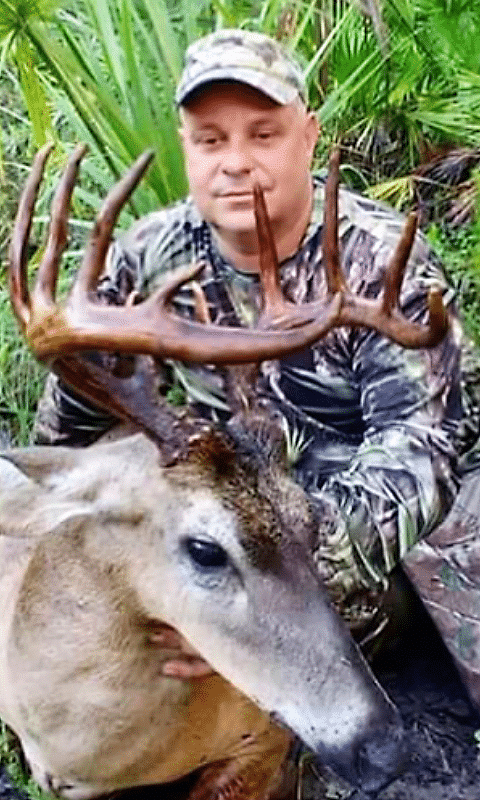For our neighbors to the south, in Florida’s Zone A, archery season has just begun. This may come as a bit of a surprise to many of you, but yes, we can legally hunt whitetail deer in July if we’re willing to take a long drive south. I wouldn’t mind the drive, as I’m a bit jealous since here in our county we have to wait until September fifteenth to get started. But the heat; September is hot enough, but July heat is more than I wish to contend with on a deer hunt.
However, for those brave souls willing to make the drive and pit their wits against a prime South Florida whitetail, the early season affords them some great harvest opportunities. First off, the deer are still at ease and primarily concerned with filling their bellies. With the intensity of this Summertime heat, it can be expected that the largest part of their feeding activity will be done at night with the deer laying up during the heat of the day. So, best strategy will be to locate bedding areas.
The bigger the buck, the more the heat will affect him during the daytime, so expect him to be bedded up near water. I’d begin my scouting with an aerial map of the land and predictions on wind directions from the National Weather Service. Locate ponds or sloughs with thickets on their downwind side. As the daytime breeze passes over the water it can cool off by as much as five degrees. If that thicket isn’t already full of hogs, you can expect to find deer bedded up there taking advantage of the cooling breeze.
Locating such a place, select your treestand or ground blind points of ambush along the trails leading to and from that spot to the feeding grounds. If spot and stalk is more to your liking, Look for higher ground from which to glass the area, watching closely for the flick of an ear or the movement of antler times. Once located, determine the way your buck is positioned to determine your best approach without being seen. You already know to avoid the water’s edge, lest your scent travels to him, so being seen is your next greatest obstacle to overcome as you attempt to close the distance.
Next, be wary of sound. Here is where footwear and clothing begin to play a key role in your hunt. Soft soled, very pliable shoes are the thing. Heavy soled hunting boots make it much harder to feel the sticks and noisy debris beneath your feet and tend to make you trod a bit clumsy if off-balance in the least. Moccasins are great for stalking, if your feet are tough enough to handle the zero, arch support, but I was always a fan of high top, Converse tennis shoes for that style of hunting. Super light-weight and pliable, they allowed me to be very quiet of foot on the hunt.
Shirt and pant choices make a big difference when trying to move silently in the thickets. Thin cotton clothing, well washed, is great. Brushed cotton, like flannel is even better if you can stand the extra warmth. But the point is, your clothes need to make no noise when moving as they rub past leaves and sticks on your way into bow range. Avoid synthetic blends and stick to natural fibers and you’ll fare just fine.
I thank each and every one of you, who have taken the time to contact me with your words of encouragement and gratitude; your feedback is much appreciated. And as always, if there are ever any questions or suggestions, please feel free to reach out to me at [email protected].

